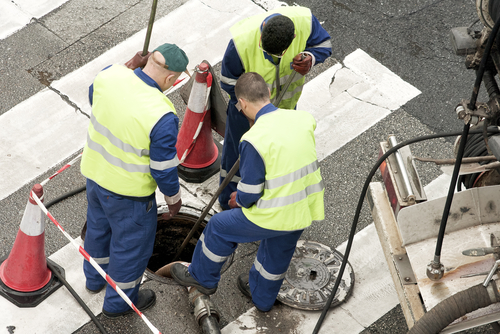
Georgia is home to a vast network of underground utilities that provide essential services to homes, businesses, and communities. From water and sewer lines to gas and electricity cables, these underground systems are vital for ensuring the smooth functioning of daily life. However, despite their importance, underground utilities are susceptible to damage from a variety of sources. Understanding the common causes of damage to underground utilities in Georgia is crucial for preventing disruptions and ensuring the safety and efficiency of these critical systems.
Excavation-related Damage
One of the most common causes of damage to underground utilities in Georgia is excavation-related incidents. Construction projects, landscaping activities, or even DIY projects that involve digging can accidentally strike underground utility lines, leading to costly repairs and service disruptions. Failure to properly locate and mark utility lines before digging is a major contributing factor to excavation-related damage. It is essential for homeowners and contractors to contact Georgia 811, the state’s utility locating service, before any excavation work to prevent accidental damage to underground utilities.
Root Infiltration
Another common cause of damage to underground utilities in Georgia is root infiltration. Trees and shrubs planted near utility lines can extend their root systems and penetrate pipes and cables, causing blockages, leaks, and other issues. Root infiltration is particularly common in sewer lines, where tree roots can infiltrate through cracks and joints in the pipes. Regular monitoring and maintenance of trees and vegetation near underground utilities can help prevent root infiltration and mitigate potential damage.
Corrosion
Corrosion is a significant threat to underground utilities in Georgia, particularly in areas with high soil acidity or corrosive groundwater. Metal pipes and cables are especially vulnerable to corrosion, which can weaken the structural integrity of the underground systems and lead to leaks, breaks, and other failures. To prevent corrosion-related damage, utilities can take proactive measures such as coating pipes with protective materials, installing corrosion-resistant materials, and monitoring the condition of underground infrastructure regularly.
Natural Disasters
Natural disasters, such as hurricanes, tornadoes, floods, and earthquakes, can also cause damage to underground utilities in Georgia. Severe weather events can lead to soil erosion, landslides, flooding, and other conditions that can impact the stability and integrity of underground systems. In the aftermath of a natural disaster, utility companies must conduct thorough inspections and repairs to restore service and ensure the safety of the community. Disaster preparedness plans and resilient infrastructure designs can help mitigate the impact of natural disasters on underground utilities.
Age and Wear
Over time, underground utilities in Georgia can deteriorate due to age, wear, and exposure to environmental conditions. Pipes, cables, and other components of underground systems may develop cracks, leaks, or other defects that compromise their function and integrity. Aging infrastructure is a significant concern for utility operators, as the cost of repairs and replacements can be substantial. Regular inspection, maintenance, and rehabilitation programs are essential for extending the lifespan of underground utilities and minimizing the risk of damage due to age and wear.
Improper Installation
Improper installation of underground utilities can also contribute to damage and failures over time. Poor construction practices, inadequate materials, and improper techniques can result in leaks, breaks, and other issues that affect the performance of underground systems. In some cases, utilities may not meet current standards and regulations, increasing the risk of damage and safety hazards. Proper planning, design, and construction practices are essential for ensuring the long-term reliability and efficiency of underground utilities in Georgia.
Preventing Damage to Underground Utilities in Georgia
Preventing damage to underground utilities in Georgia requires a proactive and collaborative approach from utility operators, contractors, homeowners, and the community. Here are some key measures that can help prevent damage to underground utilities:
1. Contact Georgia 811 before any excavation work to locate and mark underground utility lines.
2. Monitor trees and vegetation near underground utilities to prevent root infiltration.
3. Implement corrosion prevention measures, such as protective coatings and corrosion-resistant materials.
4. Develop disaster preparedness plans and resilient infrastructure designs to mitigate the impact of natural disasters.
5. Conduct regular inspections, maintenance, and rehabilitation of aging underground infrastructure.
6. Ensure proper installation and construction practices for underground utilities to prevent issues and failures.
Summary
By taking these proactive steps and staying vigilant for potential threats, stakeholders can protect underground utilities in Georgia and ensure the safety, functionality, and longevity of these critical systems. Cooperation, communication, and adherence to best practices are essential for preventing damage and disruptions to underground utilities and maintaining the quality of life for residents and businesses in Georgia.
Need an Underground Pipe Company in Dalton, GA?
Established in 2021, Grade-1 Underground is your number-one go-to company for your underground pipe needs. From Water mains to sewer lines, we have you covered. Grade-1 Underground also provides site work such as excavation, grading, land clearing, and much more. For any questions, please give us a call today!
